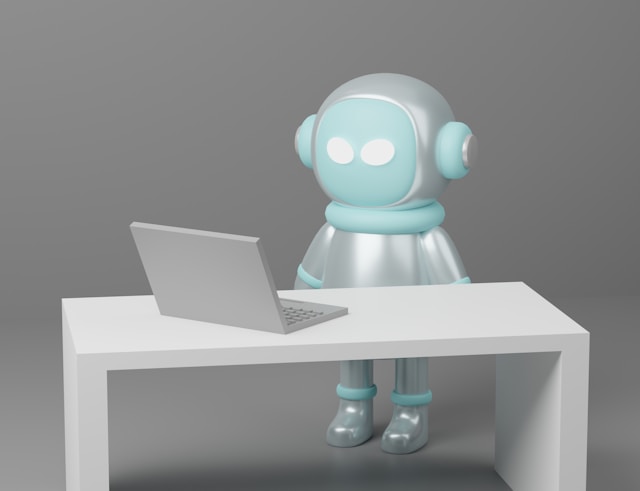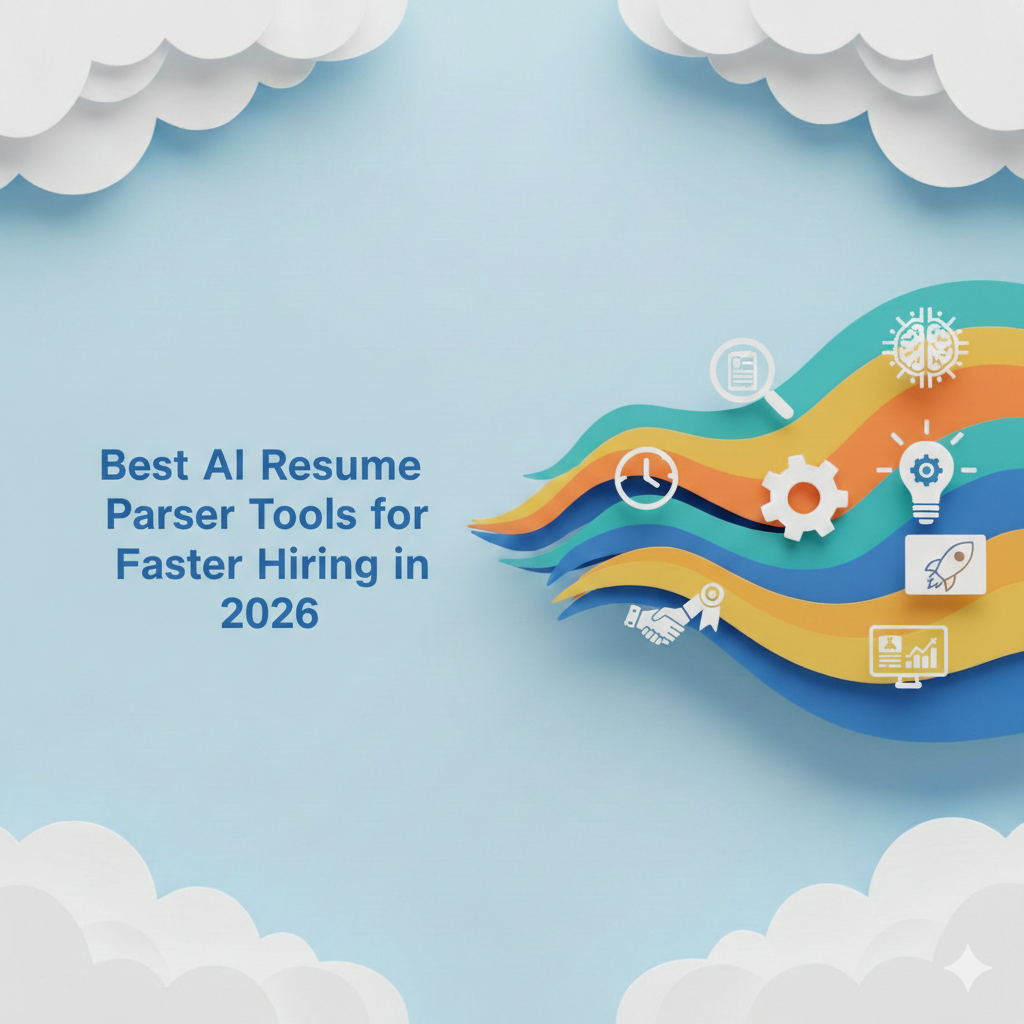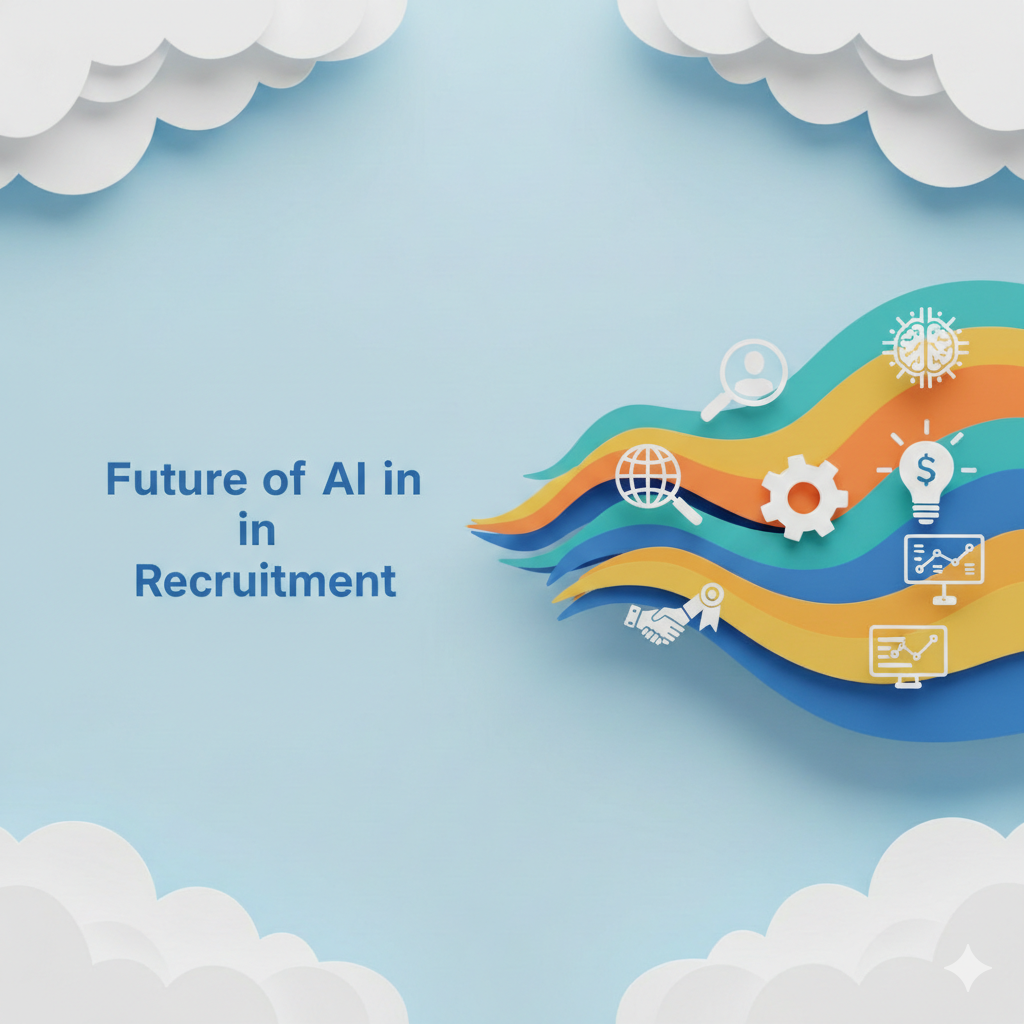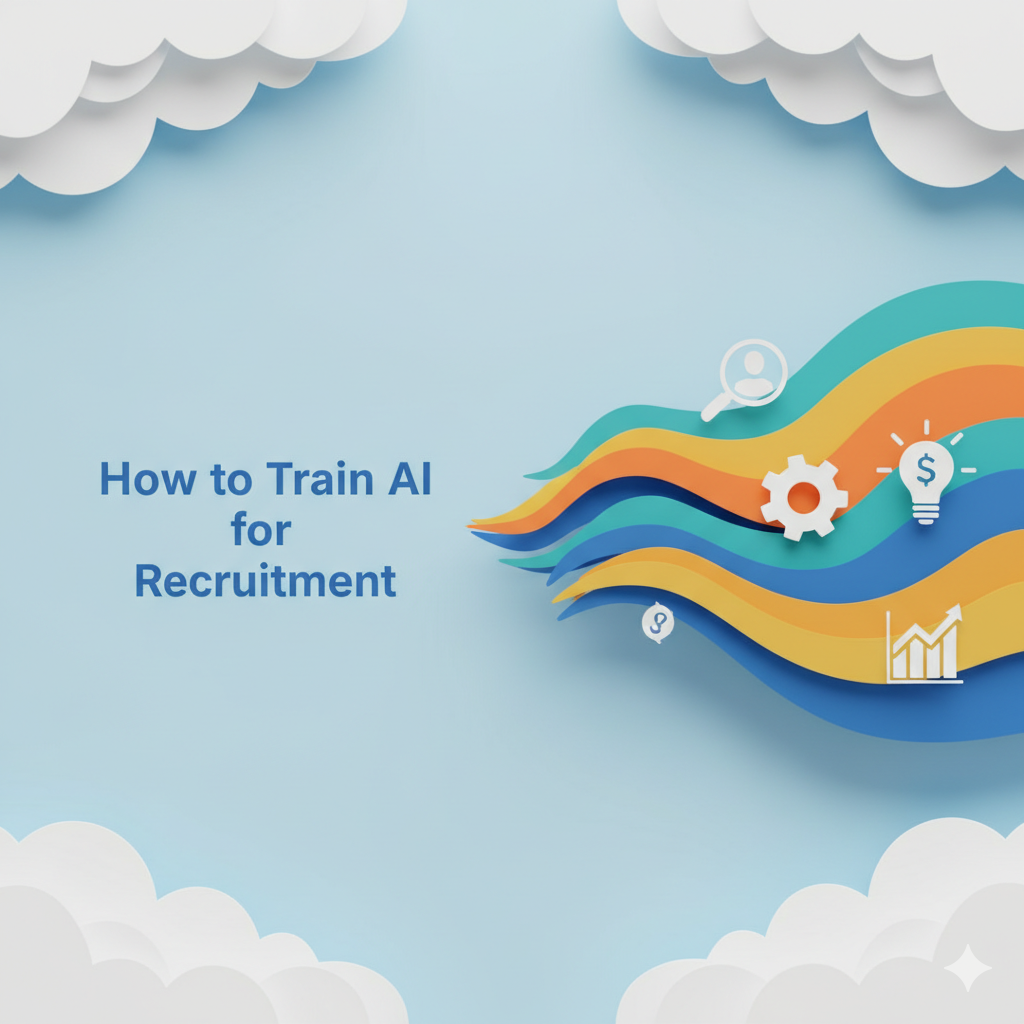Will AI Replace Recruiters? Assessing the Future of Talent Acquisition

Worried that AI might replace you as a recruiter? You’re not alone.
With AI automating everything from resume screening to interview scheduling, it’s natural to wonder where that leaves human recruiters. But here’s the good news: AI isn’t here to take your job. It’s here to make it easier.
AI hiring tools handle repetitive tasks, speed up your workflow, and reduce stress, while you focus on what matters most: building genuine connections and making great hires. Tools like HRMLESS allow you to automate pre-screening and candidate engagement, so you can use your expertise where it counts, evaluating culture fit, communicating with candidates, and guiding hiring decisions.
Think of AI as your behind-the-scenes assistant, not a replacement. When used correctly, it enhances your role and helps you do your job better.
In this blog, we will talk about:
- How the recruiter’s role is evolving in an AI-powered hiring landscape
- Where AI tools outperform humans, and where human judgment remains essential
- What steps can you take to future-proof your skills and stay ahead
Let’s break it down and explore how AI and human recruiters can work together to build smarter, faster, and fairer hiring systems.
The Evolving Role of Recruiters
Recruiters today face a changing job that mixes traditional tasks with new technology. You need to understand how recruitment used to work, how tools have changed things, and what your job looks like now. This helps you see where AI fits and where human skills remain crucial.
Historical Perspective on Recruitment
Recruitment started as a manual, face-to-face process, relying heavily on personal networks and gut feeling. Recruiters spent most of their time finding candidates through ads, phone calls, and interviews.
Paper resumes and in-person meetings shaped hiring decisions. Over time, tools like databases and job boards made sourcing candidates easier, but still required much human effort.
The focus was on matching skills to job descriptions, with limited automation. Your role was mainly about evaluating fit through personal judgment and relationship building.
Impact of Technology on Talent Acquisition
Technology has sped up recruiting by automating repetitive tasks. AI tools now pre-screen resumes, schedule interviews, and score candidates based on data.
This reduces time spent on manual work and lets you focus on better candidate engagement. AI-powered platforms like our tool automate tasks such as pre-screening and scheduling with SMS and email nudges. These features cut time to hire by 62% and lower no-show rates by half. However, technology does not replace your judgment.
It helps you spend more time on complex decisions and building genuine connections with candidates.
Modern Recruiter Responsibilities
Today, your job blends human insight with AI efficiency. You manage candidate relationships, assess culture fit, and make final hiring decisions.
You also use AI tools to surface top talent quickly and keep communication smooth. Your role includes:
- Leveraging AI interviews available 24/7 so candidates can engage on their own time
- Using scoring and filtering to focus only on qualified candidates
- Embracing automation to scale hiring without extra stress
Working with AI improves quality and speed while retaining control. Platforms like ours empower you to automate routine steps so you can concentrate on the parts that require your experience and intuition.
How AI Is Transforming Recruitment
AI changes how you find, evaluate, and choose candidates. It speeds up tasks, boosts decision quality, and helps reduce bias. These tools let you focus on building relationships and making smart hires faster.
Automating Candidate Sourcing
AI can scan millions of profiles and applications.
It evaluates skills, experience, and other key factors to find candidates who match your job needs. This saves you hours you’d spend searching manually. With tools like ours, you can automate candidate outreach through SMS and email.
This keeps communication fast and consistent. You reach more candidates without extra effort, and many do this 24/7. Automated sourcing also helps scale your hiring. Whether you have two jobs or fifty open roles, AI adjusts easily. This keeps your recruitment process smooth as your company grows.
AI-Driven Screening and Assessment
AI handles early candidate screening by scoring resumes and interview answers.
It spots top talent so you don't waste time on poor matches. This scoring is based on your criteria, making it focused and fair. Pre-screening interviews with AI let candidates respond anytime, without needing you to schedule.
That means no more delays or waiting for availability. Scheduling tools automatically book live interviews only with engaged candidates, reducing no-shows. Platforms like ours combine scoring, scheduling, and messaging in one place. This reduces ghosting and speeds up time-to-hire by up to 62%.
You get a clearer picture of candidate quality without extra manual work.
Bias Reduction and Data-Driven Decisions
AI helps remove human bias by basing decisions on data, not gut feelings.
Algorithms can be designed to ignore gender, race, or other irrelevant factors. This leads to fairer and more diverse hiring. Data tools give you insight into every step of hiring, from sourcing to offers.
You can spot bottlenecks, track candidate engagement, and measure hiring speed in real time. This makes your process more transparent and easier to improve. When you use AI thoughtfully, you keep the human touch for relationship building and complex decisions.
AI handles routine tasks while you focus on strategic hiring and culture fit.
Benefits and Limitations of AI in Recruitment
AI helps speed up hiring by handling routine tasks and cutting costs, but it also faces issues like affecting candidate experience and struggling with soft skill evaluation. These points show how AI can be a tool, not a total replacement, in recruitment.
Increased Efficiency and Cost Savings
AI automates repetitive steps like resume screening and interview scheduling. This saves you time, often reducing the hiring cycle by over half. With tools like HRMLESS, you can screen candidates 24/7 without extra effort. Automated scoring helps highlight top talent quickly.
Eliminating manual tasks and reducing no-shows can save money. Scheduling tools minimize phone tag, freeing recruiters to focus on higher-value work. Efficiency gains allow you to handle high-volume hiring without raising your team size.
You get faster results and can scale hiring smoothly.
Challenges With Candidate Experience
AI may speed up processes, but it can also feel impersonal to candidates.
Automated emails and chatbots might miss the human touch that helps keep candidates engaged. Poorly designed AI systems risk frustrating applicants by giving generic replies or misinterpreting answers, which can increase drop-off rates.
Your challenge is to balance automation with personalized communication. Use AI to handle tasks while maintaining real human connection where it matters. Our tool addresses this by combining AI interviews with real-time engagement to reduce ghosting and keep candidates involved.
Limitations in Assessing Soft Skills
AI excels at scoring hard skills but often falls short in evaluating soft skills like communication, empathy, and culture fit. These qualities require judgment, context, and nuance, things AI struggles to analyze accurately.
Relying only on AI for this may miss strong candidates who shine in team settings. Human recruiters remain critical in these areas to interpret soft skills and make informed selections.
You should use AI as a first filter, then apply human insight for a complete picture of each candidate’s potential.
Human Versus Artificial Intelligence in Recruitment
Today, recruitment blends human insight with AI efficiency. Each plays a unique role that, when combined, improves hiring speed and quality. Understanding where humans lead and where AI excels helps you use both in your process.
Strengths of Human Recruiters
Human recruiters excel in judging soft skills like emotional intelligence and cultural fit. These are critical when deciding who will thrive in your team beyond the resume. You also get the benefit of empathy and adaptability. Humans can read subtle cues and handle complex conversations during interviews.
They build trust with candidates, improving their experience and engagement. This personal connection reduces no-shows and ghosting. Recruiters interpret non-verbal signals and adjust their questions. They can spot potential issues or unique strengths that AI might miss.
This insight is essential for high-stakes roles or when hiring for leadership positions.
Situations Where AI Outperforms Humans
AI shines in handling repetitive, time-consuming tasks like screening resumes or scheduling interviews. It quickly filters unqualified candidates, letting you focus on the best fit faster.
Automated scoring and ranking use data to reduce unconscious bias. AI works 24/7, so candidates can complete pre-screening interviews independently. This lets you engage talent instantly without delays or back-and-forth emails. It’s especially useful for high-volume hiring.
Tools like ours use AI-driven conversational interviews and automated scheduling to reduce bottlenecks and ghosting. AI efficiently manages candidate flow and handles outreach via SMS and email, keeping applicants engaged across many roles simultaneously.
Future Outlook: Will AI Replace Recruiters?
AI will change how recruiting works, but won't fully replace human recruiters. It will handle routine tasks and help you save time. At the same time, your role will shift toward using skills that AI cannot mimic easily. Understanding these changes enables you to adapt and stay valuable.
Predicted Industry Trends
Recruitment will become a partnership between AI tools and human recruiters.
AI will take over repetitive tasks such as resume screening, initial interviews, and scheduling. This speeds up hiring and reduces errors caused by bias. Platforms like ours, which automate pre-screening and candidate scoring, will likely use AI-driven hiring software more.
This will reduce the time spent on manual tasks by hours. Yet, the recruiter will focus more on decision-making, relationship building, and ethical hiring practices, areas where AI lacks judgment and empathy.
Roles Most Vulnerable to Automation
Tasks involving simple, repeatable actions face the highest risk of automation. This includes initial resume sorting, mass outreach, and scheduling interviews.
These routine duties are increasingly handled by AI-powered tools, making those specific roles less necessary. If your current work mainly involves administrative chores, you may need to reconsider how to add value.
However, jobs requiring personal interaction, coaching hiring managers, or assessing cultural fit are less likely to be automated. Your challenge is moving away from processes AI can do faster and focusing on the strategic and interpersonal aspects recruiters do best.
Evolving Skill Sets for Recruiters
To stay ahead, you must develop skills AI can’t replace. These include emotional intelligence, complex problem-solving, and ethical judgment. Understanding candidates deeply and managing relationships remains crucial. You should also get familiar with AI tools that automate hiring tasks.
Learning to work alongside platforms like ours will help you maximize efficiency. This means mastering data analysis from AI outputs and using automation to improve candidate experience. Recruiters who embrace technology while sharpening human skills will secure their roles in the future hiring landscape.
Preparing for an AI-Driven Recruitment Landscape
Adapting to AI in hiring means growing your skills and guiding your company through change. You need practical knowledge and a clear plan to use AI tools well and keep your hiring fair and efficient.
Upskilling for Recruiters
You must learn to work with AI tools instead of against them.
Focus on understanding how AI handles tasks like resume screening, candidate scoring, and interview scheduling. This lets you spend more time on personal interactions and strategic decisions. Develop skills in data analysis to interpret AI recommendations.
This helps you make informed choices instead of blindly trusting algorithms. Here’s what to prioritize:
- Using AI to speed up routine tasks
- Identifying when human judgment is needed
- Recognizing potential AI bias and knowing how to address it
Upskilling will make you more valuable. Companies look for recruiters who can blend technology with human insight.
Organizational Adoption Strategies
Your company needs a clear plan to adopt AI hiring tools successfully.
Start with small pilot programs before expanding AI across recruitment. Communicate AI’s benefits clearly to your team. Show how automation saves hours and reduces mistakes by handling pre-screening and scheduling.
Keep candidate experience in mind. Use AI tools that keep candidates engaged with automated SMS and email nudges to minimize no-shows and dropouts. Track your results with real-time analytics to see where the process improves and what needs adjustment. This data guides better decision-making.
Your HR systems should integrate seamlessly with AI tools. Platforms like ours connect with ATS and HRIS, avoiding disruption and boosting efficiency. By taking these steps, your organization can harness AI without losing the human touch that candidates value.
Ethical and Social Implications of AI in Recruitment
AI changes how hiring works, but it brings critical ethical questions. You must think about how candidate data is handled and make sure every applicant gets a fair chance. These issues shape how you use AI tools like ours in hiring.
Privacy Concerns and Data Security
Using AI means collecting lots of personal information.
You must protect this data from unauthorized access or leaks. Hiring platforms should follow strict rules about data use and keep information secure at all times. Transparency is key.
Candidates should know what data you collect and how it's used. This builds trust and avoids surprises. Regular staff training on data protection helps prevent mistakes and misuse. Always look for AI recruitment tools that prioritize privacy and comply with laws like GDPR.
Your responsibility is to keep candidate info safe and respect their rights.
Ensuring Fair and Unbiased Hiring
AI can help reduce human bias in hiring, but it can also reinforce it if not designed carefully.
Your AI system should be tested regularly for bias in screening and scoring candidates. Focus on tools that use diverse data sets and clear criteria. Avoid relying solely on AI to decide who moves forward.
Keep human judgment involved. This balance prevents unfair outcomes. With our tool, automation removes unconscious bias by scoring candidates objectively.
You get a fair shortlist and spend less time on guesswork.
Wrapping It Up
AI won’t replace recruiters; it will redefine what great recruiting looks like.
By automating repetitive tasks and surfacing top talent faster, AI tools free you to focus on the human side of hiring: building trust, evaluating fit, and making impactful decisions. Platforms like HRMLESS empower you to work smarter, not harder, combining automation with your expertise to create a faster, fairer hiring process.
The future belongs to recruiters who embrace AI as a partner, not a threat.
Start your free trial or book a demo with HRMLESS today, and experience effortless, efficient hiring.
Frequently Asked Questions
Still wondering how AI might reshape your role as a recruiter, or what it looks like in day-to-day hiring? These common questions fill in the gaps and give precise, practical answers that help you stay ahead as the industry evolves.
Can recruiters lose their jobs because of AI automation?
AI may shift tasks, but it won’t replace the human touch in recruitment. Roles focused solely on admin may shrink, but strategic, relationship-driven recruiters will always be needed to assess soft skills and guide hiring decisions.
What should recruiters learn to stay relevant in an AI-driven hiring world?
Focus on skills AI can’t replace, like emotional intelligence, storytelling, and ethical decision-making. Also, learn how to interpret AI insights and improve processes using data. Combining tech fluency with human insight is your best long-term advantage.
Will AI interviews completely replace live interviews?
No. AI interviews are ideal for pre-screening and saving time, but live interviews remain crucial for assessing communication style, mindset, and culture fit. Think of AI as a filter—not a final decision-maker.
How can AI support diversity and inclusion in hiring?
AI can anonymize candidate data and apply consistent evaluation criteria, helping reduce unconscious bias. However, you must regularly audit AI tools and use diverse datasets to ensure fairness in practice, not just in theory.
Does using AI make hiring feel impersonal to candidates?
It can, if not balanced with human interaction. Platforms like HRMLESS help by combining automation with real-time engagement, so candidates stay informed and connected throughout the process without feeling ignored.
Featured
Subscribe to ournewsletter
Related posts
Explore the world of photography with our curated selection of
portfolio websites that showcase creativity and innovation.




